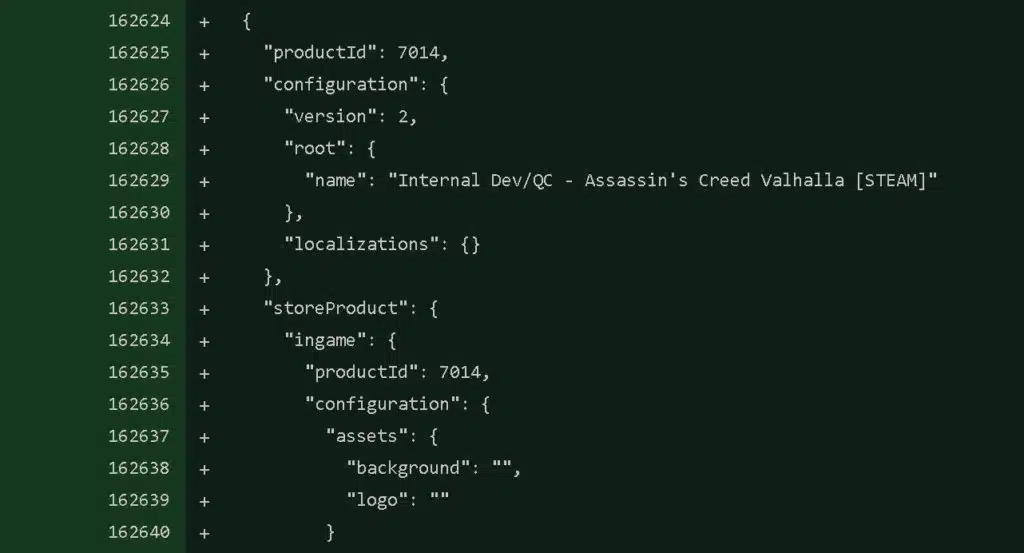
Ubisoft launched Assassin’s Creed Valhalla on November 19, 2020, for Xbox Series X, Xbox Series S, Xbox One, PlayStation 4, and the Epic Games Store and Ubisoft Store on Windows PC, but the Viking action RPG may finally be available through Steam as well soon, according to a screenshot shared by r/pcgaming that indicates a Steam version has been added to the database for Ubisoft’s games launcher, Ubisoft Connect.
The contents of the screenshot stem from a product update that can be found on YoobieRE’s Github page, which comprises a series of changes that include the line “Internal Dev/QC – Assassin’s Creed Valhalla [STEAM],” hinting at an expanded PC release for the latest mainline game in one of Ubisoft’s most successful franchises.
Assassin’s Creed Valhalla received a major DLC update in the form of the Dawn of Ragnarök expansion in March 2022, but Ubisoft still hasn’t added a New Game+ mode for the game, something that would hint toward at least one more major update.

Assassin’s Creed Mirage, which releases next year, will be the last cross-generation game in the franchise, as confirmed by Ubisoft during September’s showcase event:
When Mirage launches in 2023 – three years after Assassin’s Creed Valhalla – it will have been the longest period of time between mainline Assassin’s Creed games. According to Côté, that’s an intentional decision, and something players can come to expect. Assassin’s Creed Mirage will be the last cross-generation game. Starting with Assassin’s Creed Codename RED, games will be built specifically for current-gen consoles; the extra time in between allows the development teams to improve their Anvil engine to deliver a more polished experience. Just because RED and HEXE were announced at the same time, doesn’t mean you should necessarily expect them to launch in sequential years.
“We’re also shifting our development model to make it more sustainable for our teams, as previously we used to average about three years for each development cycle on Assassin’s Creed,” says Côté. “So we’re moving to longer dev cycles to make them more sustainable from a human and technological point of view, so that we can truly build on the shoulders of one another and then support our games for a longer period of time.”
